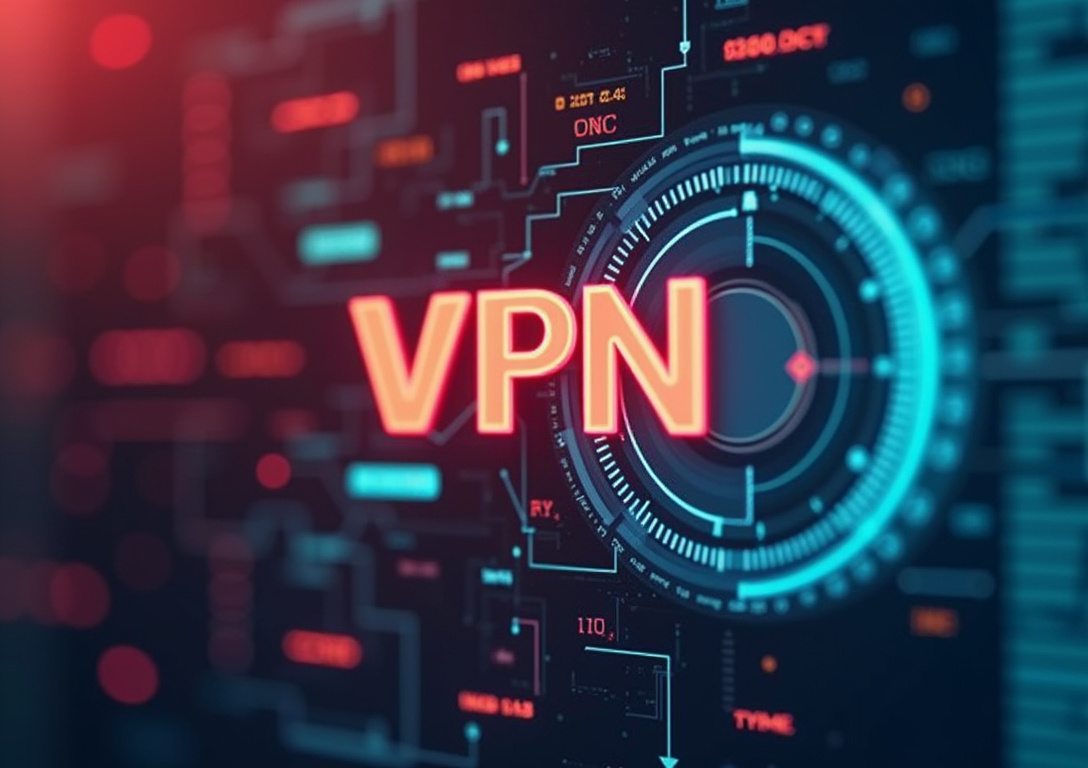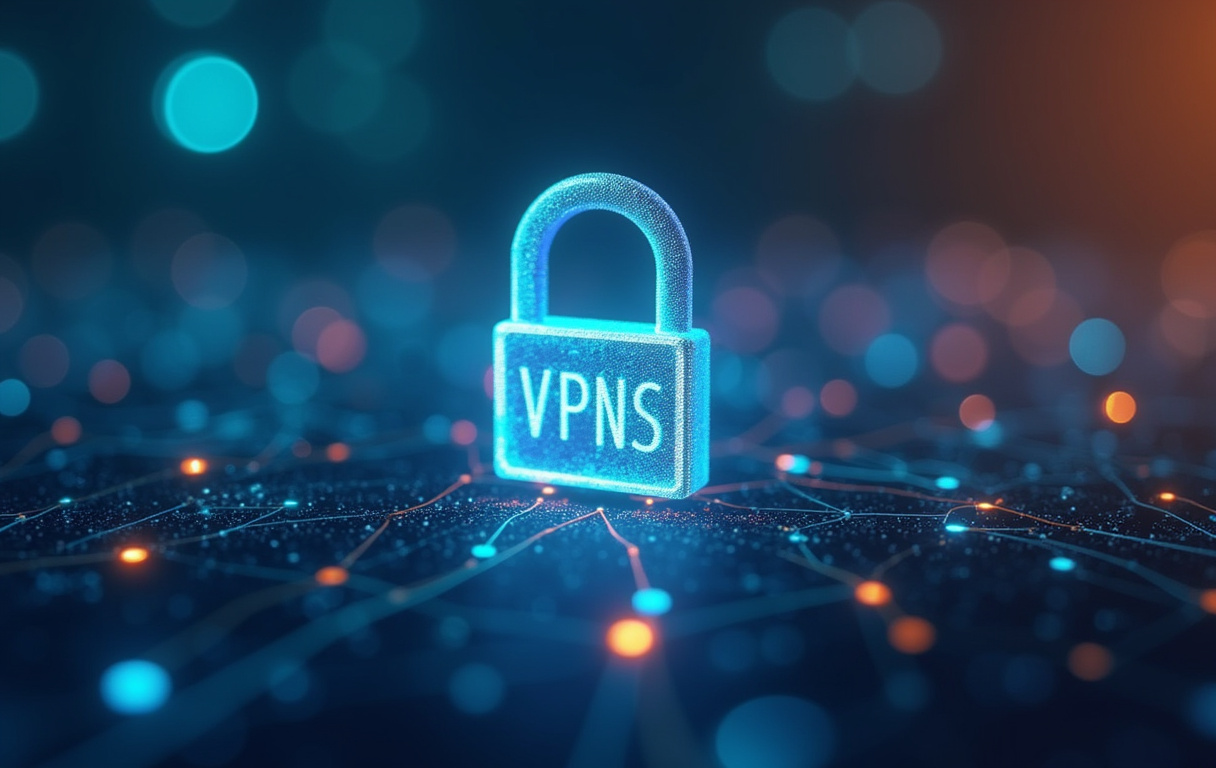Virtual Private Networks vs. Proxies: An In-Depth Comparison

Table of Contents
Virtual Private Networks vs. Proxies: An In-Depth Comparison
In today's digital age, online privacy and security are no longer luxuries but necessities. As we navigate the internet, our data is constantly vulnerable to prying eyes, be it from governments, corporations, or malicious hackers. To combat these threats, two popular tools have emerged: Virtual Private Networks (VPNs) and proxies.
While both aim to mask your IP address and provide a degree of anonymity, they function differently and offer varying levels of security. Understanding the nuances between is crucial for making informed decisions about protecting your online presence. This comprehensive guide will delve into a detailed and , highlighting their strengths, weaknesses, and suitability for different scenarios.
We will meticulously functionalities, exploring their , performance impacts, and ease of use. Ultimately, this analysis will empower you to choose the optimal solution tailored to your specific privacy and security needs. At their core, both VPNs and proxies act as intermediaries between your device and the internet.
Instead of directly connecting to websites, your traffic is routed through a server operated by the VPN or proxy provider. This indirect connection effectively hides your real IP address, making it difficult to trace your online activities back to your physical location. The most significant divergence lies in the scope of protection they offer.
A VPN encrypts all internet traffic originating from your device, creating a secure tunnel that shields your data from eavesdropping. This encryption extends to all applications and services that access the internet, encompassing web browsers, email clients, and more. In contrast, a proxy typically operates at the application level, meaning it only protects traffic from specific programs configured to use it.
For instance, you might configure your web browser to use a proxy server, but your email client or other applications would bypass it, exposing their traffic directly to the internet. This fundamental difference in the breadth of protection has a profound impact on the overall security posture of a user. Furthermore, the underlying technology and protocols employed by VPNs and proxies contribute to their distinct characteristics.
VPNs utilize sophisticated encryption protocols like OpenVPN, IKEv2/IPsec, and WireGuard, employing robust algorithms to scramble data and render it unreadable to unauthorized parties. These protocols ensure the confidentiality and integrity of your data while in transit. Proxies, on the other hand, often rely on simpler protocols like HTTP or SOCKS, which may not offer the same level of encryption or security.
HTTP proxies primarily handle web traffic, while SOCKS proxies can handle various types of traffic, but neither provides the comprehensive encryption found in VPNs. This fundamental difference in operational scope and security protocols significantly influences the overall effectiveness of each technology in safeguarding user privacy. While both options can mask your IP address, the methods they employ and the extent of the protection they offer are markedly different, leading to varying degrees of security and anonymity.
Consider a scenario where a user is accessing a public Wi-Fi network. Without any protection, their data is vulnerable to interception by anyone else on the network. If the user connects to a VPN, all their traffic is encrypted, preventing eavesdropping and ensuring the confidentiality of their communications.
However, if the user connects to a proxy, only the traffic from the application configured to use the proxy is protected, while other applications may still be vulnerable. This key difference underscores the importance of understanding the limitations of proxies, especially in high-risk environments. Thus, the suitability of each tool hinges on the specific needs and threat model of the user.
For individuals seeking comprehensive protection across all applications and services, a VPN is generally the preferred choice. However, for users who only need to mask their IP address for specific purposes, such as accessing geo-restricted content or bypassing censorship, a proxy may suffice. In summary, VPNs offer system-wide encryption and protection for all internet traffic, while proxies typically provide application-specific masking without strong encryption.
This distinction is paramount when assessing the and choosing the right tool for your online security needs. Consequently, the selection of the appropriate tool depends on various factors, including the user's specific requirements, threat model, and technical expertise.
security features
The level of offered by VPNs and proxies is a critical factor in determining their suitability for different use cases. As mentioned earlier, VPNs employ strong encryption protocols to protect your data from interception and tampering. This encryption extends to all traffic passing through the VPN tunnel, including sensitive information like passwords, financial details, and personal communications.
By encrypting your data, VPNs create a secure environment that shields you from various threats, such as man-in-the-middle attacks, eavesdropping by malicious actors, and monitoring by internet service providers (ISPs). The choice of encryption protocol plays a significant role in the overall security of a VPN. OpenVPN is widely regarded as one of the most secure and reliable protocols, offering a balance of strong encryption and performance.
IKEv2/IPsec is another popular option, particularly for mobile devices, due to its stability and fast reconnection times. WireGuard is a relatively new protocol that boasts impressive speed and security, quickly gaining traction in the VPN industry. In addition to encryption, VPNs often incorporate other to enhance your online protection.
These may include a kill switch, which automatically disconnects your internet connection if the VPN connection drops, preventing your data from being exposed. DNS leak protection ensures that your DNS queries are routed through the VPN server, preventing your ISP from monitoring your browsing activity. Some VPNs also offer double VPN or multi-hop connections, which route your traffic through multiple servers, adding an extra layer of security and anonymity.
In contrast to VPNs, proxies typically offer limited or no encryption. HTTP proxies, for instance, do not encrypt your traffic by default, leaving it vulnerable to interception. While some SOCKS proxies support encryption, it is not always enabled or implemented securely.
This lack of encryption makes proxies less suitable for protecting sensitive data or conducting activities that require a high level of privacy. Furthermore, proxies are often more susceptible to logging and monitoring than VPNs. Proxy providers may log your IP address, browsing history, and other information, potentially compromising your privacy.
While some proxy providers claim to offer anonymity, it is essential to carefully evaluate their privacy policies and reputation before trusting them with your data. The risks associated with unsecured proxies are substantial. Without encryption, your data is transmitted in plain text, making it easily readable by anyone who intercepts it.
This includes malicious actors, ISPs, and even the proxy provider itself. The consequences of data interception can range from identity theft and financial fraud to reputational damage and legal repercussions. Moreover, the of a proxy can vary depending on the type of proxy and the provider.
Free proxies, in particular, are often unreliable and may even be malicious, injecting ads into your traffic or stealing your personal information. The lack of quality control and security measures in free proxies makes them a significant security risk. Therefore, it is crucial to exercise caution when using proxies, especially free ones, and to prioritize VPNs when strong encryption and comprehensive security are required.
A reputable VPN provider typically undergoes regular security audits to ensure the integrity of its infrastructure and encryption protocols. These audits help identify and address potential vulnerabilities, providing users with added assurance of their security. A should always include an assessment of the provider's security practices and audit history.
When conducting a based on security, factors to consider include the encryption protocols used, the availability of a kill switch and DNS leak protection, the provider's logging policy, and the overall reputation of the provider. A thorough should focus on the type of proxy, the presence of encryption, the provider's logging policy, and the potential risks associated with using the proxy. Ultimately, the choice between a VPN and a proxy depends on your individual security needs and risk tolerance.
If you require strong encryption, comprehensive protection, and a high level of privacy, a VPN is the clear choice. However, if you only need to mask your IP address for specific purposes and are willing to accept the associated security risks, a proxy may suffice.
compare VPN and proxy
Another crucial aspect when we services is their impact on internet speed and performance. VPNs, due to their encryption process, inevitably introduce some overhead, which can potentially slow down your internet connection. The encryption and decryption of data require processing power, and the distance between your device and the VPN server can also contribute to latency.
However, the extent of the speed reduction can vary significantly depending on several factors, including the VPN protocol used, the server location, the server load, and the quality of your internet connection. Modern VPN protocols like WireGuard are designed to minimize performance impact, offering faster speeds than older protocols like OpenVPN. Choosing a VPN server that is geographically close to your actual location can also help reduce latency and improve speed.
A reputable VPN provider typically maintains a large network of servers in various locations, allowing you to choose the optimal server for your needs. Furthermore, the server load can affect performance. If a VPN server is overloaded with users, it can lead to slower speeds and increased latency.
Therefore, it is advisable to choose a VPN provider that has sufficient server capacity to handle its user base. The quality of your internet connection also plays a crucial role in VPN performance. If you have a slow or unstable internet connection, a VPN may exacerbate the problem.
In such cases, optimizing your internet connection or upgrading to a faster plan may be necessary. In contrast, proxies generally have a smaller impact on internet speed than VPNs because they typically do not encrypt your traffic. However, proxies can still introduce some latency due to the routing of traffic through an intermediary server.
The performance of a proxy server can also be affected by its location, load, and the quality of its connection. A slow or overloaded proxy server can significantly degrade your internet speed. When conducting a or , it is essential to consider the performance implications.
Speed tests can help you assess the impact of a VPN or proxy on your internet connection. Many websites and apps allow you to measure your download and upload speeds with and without a VPN or proxy. These tests can provide valuable insights into the performance of different VPN and proxy services.
In addition to speed tests, it is also helpful to read reviews and testimonials from other users. User reviews can provide real-world feedback on the performance of VPN and proxy services, highlighting their strengths and weaknesses. A thorough should include an assessment of the provider's server network, protocol support, and performance claims.
Look for VPN providers that offer a wide range of server locations, support modern protocols like WireGuard, and have a reputation for fast speeds. A should focus on the type of proxy, its location, and user reviews regarding its performance. Free proxies are often notorious for their slow speeds and unreliability.
They may be overloaded with users, located in distant locations, or even intentionally throttled to encourage users to upgrade to paid services. Therefore, it is generally advisable to avoid free proxies if performance is a concern. Choosing between a VPN and a proxy based on performance requires careful consideration of your internet speed, the distance to the server, and the encryption overhead.
If speed is your primary concern and you do not require strong encryption, a proxy may be a suitable option. However, if security and privacy are paramount, a VPN is the better choice, and you may need to accept some performance trade-offs.
security features
Ease of use and accessibility are critical factors to consider when choosing between a VPN and a proxy. VPNs have become increasingly user-friendly over the years, with most providers offering intuitive apps for various devices, including computers, smartphones, and tablets. These apps typically provide a simple interface for connecting to VPN servers, configuring settings, and managing your account.
Many VPN providers also offer browser extensions that allow you to quickly connect to a VPN server directly from your web browser. The setup process for a VPN is generally straightforward. After subscribing to a VPN service, you typically download and install the VPN app on your device.
The app will then guide you through the process of creating an account and connecting to a VPN server. Some VPN providers offer one-click connect options, which automatically connect you to the fastest available server. Others allow you to manually select a server from a list of available locations.
VPN apps often include advanced , such as a kill switch and DNS leak protection, which can be easily enabled or disabled with a single click. These features enhance your online protection and provide peace of mind. The accessibility of VPNs has also improved significantly.
Most VPN providers offer apps for all major operating systems, including Windows, macOS, Android, and iOS. This allows you to protect your devices regardless of the platform you use. Some VPN providers also offer support for routers, allowing you to protect all devices connected to your home network through a single VPN connection.
In contrast to VPNs, proxies can be more complex to set up, especially for users who are not technically savvy. Proxies typically require manual configuration of your web browser or other applications. This involves entering the proxy server's IP address and port number into the application's settings.
The exact steps for configuring a proxy can vary depending on the application you are using. Some operating systems also offer system-wide proxy settings, which can be used to route all internet traffic through a proxy server. However, these settings may not be compatible with all applications.
The accessibility of proxies can also be limited. Some proxy providers only offer support for specific operating systems or applications. Furthermore, free proxies often require you to manually find and configure proxy servers, which can be a time-consuming and frustrating process.
When conducting a or , it is essential to consider the ease of use and accessibility. Look for VPN providers that offer user-friendly apps, comprehensive documentation, and responsive customer support. A should focus on the availability of setup guides, the compatibility with different applications, and the level of technical expertise required.
If you are not comfortable with manually configuring proxy settings, a VPN is generally the better choice. VPNs offer a more streamlined and user-friendly experience, making them accessible to users of all technical skill levels. A crucial aspect of evaluating the user experience is considering the level of customer support offered by the provider.
VPNs often provide 24/7 customer support via live chat, email, or phone, assisting users with setup, troubleshooting, and other inquiries. This level of support is especially valuable for users who are new to VPNs or encounter technical issues. When evaluating proxies, assess the availability of documentation and online resources to guide you through the configuration process.
The presence of a helpful community forum or FAQ section can also be beneficial for resolving common issues. In summary, VPNs generally offer a more user-friendly and accessible experience compared to proxies, with intuitive apps, comprehensive documentation, and responsive customer support. Proxies, on the other hand, can be more complex to set up and may require a higher level of technical expertise.
The choice between a VPN and a proxy depends on your technical skills and your willingness to invest time in configuring the service.
security features
Ultimately, the decision of whether to use a VPN or a proxy hinges on a careful evaluation of your individual needs, priorities, and technical capabilities. Both tools serve the purpose of masking your IP address and providing a degree of anonymity, but their underlying mechanisms and scope of protection differ significantly. To recap, VPNs offer comprehensive, system-wide protection by encrypting all internet traffic originating from your device.
This encryption safeguards your data from eavesdropping, man-in-the-middle attacks, and monitoring by ISPs, making VPNs a robust solution for enhancing online security and privacy. Key of a VPN often include a kill switch, DNS leak protection, and a choice of encryption protocols like OpenVPN, IKEv2/IPsec, or WireGuard. The trade-off for this enhanced security is a potential reduction in internet speed due to the encryption overhead.
However, modern VPN protocols and optimized server networks can minimize this performance impact. Proxies, on the other hand, typically operate at the application level, protecting traffic only from specific programs configured to use them. They generally do not offer encryption, leaving your data vulnerable to interception.
While proxies can be faster than VPNs due to the lack of encryption, they also pose a greater security risk. Free proxies, in particular, are often unreliable and may even be malicious, potentially injecting ads into your traffic or stealing your personal information. When deciding between a VPN and a proxy, consider the following factors: * If you handle sensitive data online, such as financial information or confidential communications, a VPN is the clear choice.
The robust encryption provided by a VPN is essential for protecting your data from unauthorized access. * If you are concerned about your online privacy and want to prevent your ISP or other parties from monitoring your browsing activity, a VPN is the preferred option. A VPN hides your IP address and encrypts your traffic, making it difficult to track your online activities back to your physical location.
* If speed is your top priority and you do not require strong encryption, a proxy may suffice. However, be aware of the security risks associated with using an unencrypted proxy. * VPNs are generally easier to set up and use, with intuitive apps for various devices.
Proxies, on the other hand, may require manual configuration, which can be challenging for non-technical users. * While many reliable VPN services require a subscription fee, this investment translates into robust security, privacy, and performance. Free proxies are often tempting, but their unreliability, potential for malware, and lack of privacy make them a risky choice for serious users.
A thorough should involve evaluating the provider's encryption protocols, server network, logging policy, price, and customer support. Look for VPN providers with a proven track record of security and reliability, as well as a clear and transparent privacy policy. A must focus on the type of proxy, the presence of encryption, the provider's logging policy (if any), and the potential risks associated with its use.
Exercise extreme caution when using free proxies, and always prioritize your security and privacy. Remember that neither a VPN nor a proxy provides absolute anonymity. While they can help mask your IP address and protect your data, they cannot prevent all forms of tracking or surveillance.
It is important to practice good online security habits, such as using strong passwords, avoiding suspicious websites, and keeping your software up to date, regardless of whether you are using a VPN or a proxy. Finally, conduct regular assessments of your security needs and adjust your protection strategies accordingly. The online threat landscape is constantly evolving, so it is important to stay informed about the latest security risks and best practices.
By carefully considering your individual needs and conducting thorough research, you can make an informed decision about whether a VPN or a proxy is the right tool for you.
Stay Updated
Get the latest VPN news, tips, and exclusive deals to your inbox.




